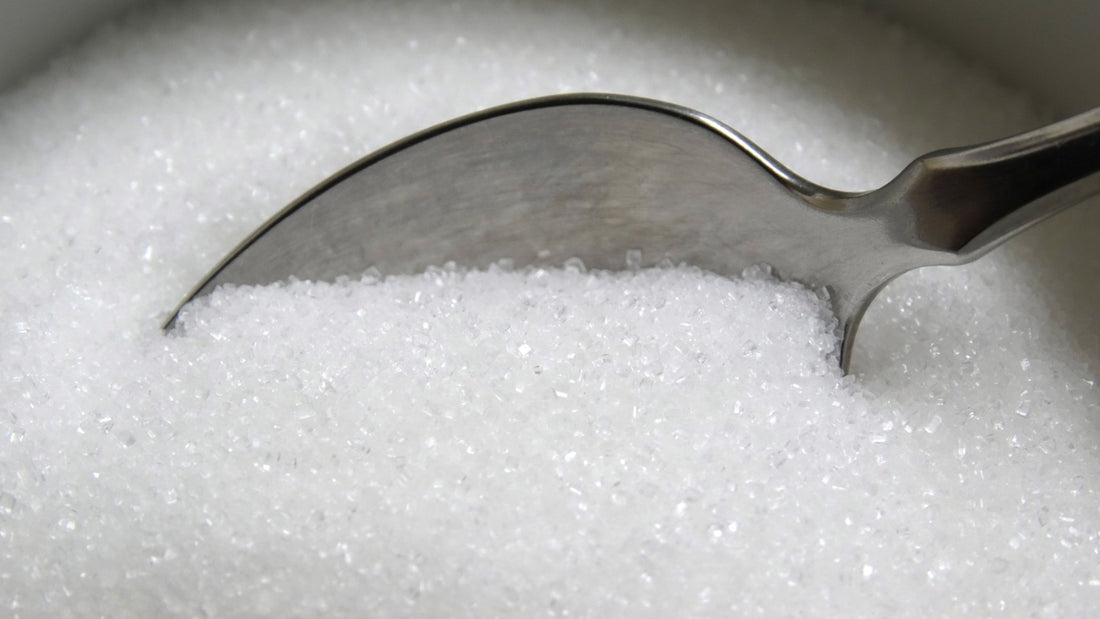
''Non-sugar sweeteners aren’t effective for weight control and could be harmful long-term, WHO says''
Gloria PalcichShare
Let's take a closer look at this article published out by the Globe and Mail.
OVERVIEW
The World Health Organization (WHO) recently released a new guideline on non-sugar sweeteners (NSS) and advised against their use for weight loss or preventing unhealthy weight gain. The findings suggested that consuming these sweeteners over a prolonged period could have adverse health effects and ''not provide long-term benefits in reducing body fat for adults and children''.
WHAT ARE NSS'S?
NSS, also known as low- or no-calorie sweeteners, or sugar substitutes, are found in numerous pre-packaged foods, beverages, and tabletop sweeteners.
They include both synthetic chemicals (such as aspartame, sucralose, acesulfame potassium, saccharin, cyclamates) and natural extracts (like stevia, monk fruit, and sugar alcohols).
FROM THE WHO STUDY
The new guideline was developed based on a review of 238 studies, including randomized controlled trials and observational studies involving adults, children, and pregnant women. Based on these findings, the WHO recommends that children and adults, including pregnant women, avoid using NSS for weight control or reducing the risk of diet-related chronic diseases.
From the WHO:
''The recommendation applies to all people except individuals with pre-existing diabetes and includes all synthetic and naturally occurring or modified non-nutritive sweeteners that are not classified as sugars found in manufactured foods and beverages, or sold on their own to be added to foods and beverages by consumers.''
The WHO states:
''Results of the review also suggest that there may be potential undesirable effects from long-term use of NSS, such as an increased risk of type 2 diabetes, cardiovascular diseases, and mortality in adults.''
But also states:
''Because the link observed in the evidence between NSS and disease outcomes might be confounded by baseline characteristics of study participants and complicated patterns of NSS use, the recommendation has been assessed as conditional, following WHO processes for developing guidelines''
THINGS TO CONSIDER
- The WHO states this informations should esclude those with pre-existing diabetes.
- This study is a ''systematic review of evidence'', which means it is reviewing existing studies on the subject to come up with a summary. It is always best to take these with a grain of salt as they are summarizing a lot of complex information taken from various studies.
- The WHO doesn't specify which sweeteners may or may not cause more harm. It groups sweeteners like monk fruit, aspartame and sucralose all under the umbrella of NSS.
OUR RECOMMENDATIONS
- We have said since day one, and continue to say, if you're addicted to sugar and sweet things, it is always best to cut out sweets as best you can, keto friendly or not.
- Everybody has different priorities when it comes to health. If your goals are to avoid raising blood sugar and reducing cravings, opting for a stevia sweetened treat over something with highly processed white sugar or fruit, we'd vote for the stevia sweetened treat 9 times out of 10.
- Enjoy everything in moderation. Even low-carb sweets are not meant to be binged on, and overdoing it with any kind of dessert is not optimal. However if you're goals are to help reduce sugar intake (which has a ton of benefits) then enjoy a keto friendly treat is a better option.
- Avoid sweeteners like aspartame, sucralose and sweet n' low as they have a number of negative health effects, and instead stick to the natural sweeteners like stevia or monk fruit. Overeating of sweeteners like stevia has been shown to negatively affect gut health, so again, enjoying in moderation is best.
FINAL THOUGHTS
Eating a nutrient dense, whole foods diet is what we believe can heal the body. Of course, we love our sweets, but a keto cheesecake isn't necessarily the most nutrient dense food you could ever eat, right? Desserts are a treat, something we include in our diet to enjoy, savour, but not as something to include with every meal. Focusing on eating whole foods without any additives is what we're all about.
As always, we are here to read, respond, and think critically about all information regarding our health. This study, while there are some truths, is again an attention grabbing headline that will get people to click. When we take a closer look, we can see there aren't many specifics to go off of here, and more research is needed.
In good health,
Aria
BHS, CNP
Link to article in the Globe and Mail.
Link to write up on WHO website.
